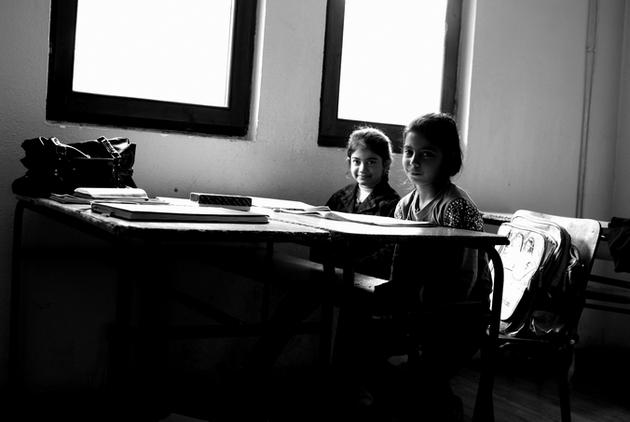Czech teachers' lobby wins fight to keep "practical primary schools" open

News server iDNES.cz reports that an influential teachers’ lobbying group has pushed through amendments to the Government’s "Strategy for the Fight against Social Exclusion", which originally proposed closing the "practical primary schools" in the Czech Republic by 2015. The Czech Education Ministry is not counting on closing these facilities in the immediate future, as it says mainstream primary schools are not prepared for children with special needs.
Czech Government Human Rights Commissioner Monika Šimůnková confirmed to the Czech daily Mladá fronta DNES that two sections of the "Strategy" will be changed. "We are not counting on transforming the practical primary schools into mainstream schools and we will amend the Government’s Strategy for the Fight against Social Exclusion to reflect that," Šimůnková said.
Despite this, Šimůnková said support will continue for all activities that contribute to making sure that children do not end up at the schools, which are supposed to educate pupils with "light mental disability", just because they are from socially deprived families. "Preparing schools and teachers to work with children who are medically or socially disadvantaged does not have to take a long time. Today there are many schools educating such children without any problems," she said.
Marek Zeman, a spokesperson for the Czech Education Ministry, said the ministry leadership is rolling out measures to make it easier to reassign children from the "practical primary schools" into mainstream classrooms. The European Court of Human Rights is pressuring the Czech Republic to change the system and has criticized its selection process for children. in particular the fact that Romani children end up in "special schools" even when they should be able to handle normal instruction.
Thousands of primary school teachers have protested what they saw as the precipitous closure of the "practical primary schools". In their view, the current system is not prepared to instruct mentally disabled children, as teachers lack the necessary education and there is no funding for special aids or teaching assistants. Class sizes would also have to be reduced from their current levels of 30 to anywhere between 15 and 20 pupils in order to make sure the inclusion of "lightly mentally disabled" children does not harm them or the mainstream pupils, and that will require more money.
Socially disadvantaged children don’t belong in "practical primary schools"
The process of reassigning children who have been incorrectly enrolled into "practical primary schools" is now set to run gradually and slowly. The ministry has reportedly perfected the diagnostic process so that only pupils with "light mental retardation" will be enrolled in such schools.
Šimůnková wants to get rid of a section in the current law that makes it possible for socially disadvantaged children who are not disabled to be educated in the "special schools". Thanks to such a move, the number of "practical primary schools" could be reduced in years to come.
Transition must be gradual
After consulting with many school directors and teachers, Mladá fronta DNES has determined that the problem often is not a lack of willingness to teach disabled children. Teachers essentially agree that such children should be enrolled in mainstream schools. However, they warn that neither the schools nor the schoolmasters are prepared for this.
According to Gordon Brei, the director of a primary school on Lidická street in Brno who has become the face of the protests, the state planned too rapid of a change. "For the safe transitions of those pupils into ordinary classrooms we would need 10 – 11 years, it has to run gradually," Brei said.
In Finland, for example, there is no equivalent of the Czech "special schools". All pupils learn together in smaller classes with the aid of assistants. According to international comparisons, the results achieved at those schools are better than Czech results for the most part.
For the time being it is impossible to estimate how long it will take for the Czech schools to work out a similar model. The objections of primary school directors and teachers were previously supported by the Czech Social Democratic Party’s Shadow Education Minister, Senator Marcel Chládek, who indicated that if he takes charge of the ministry after next year’s elections he will not permit the "special schools" to be closed.